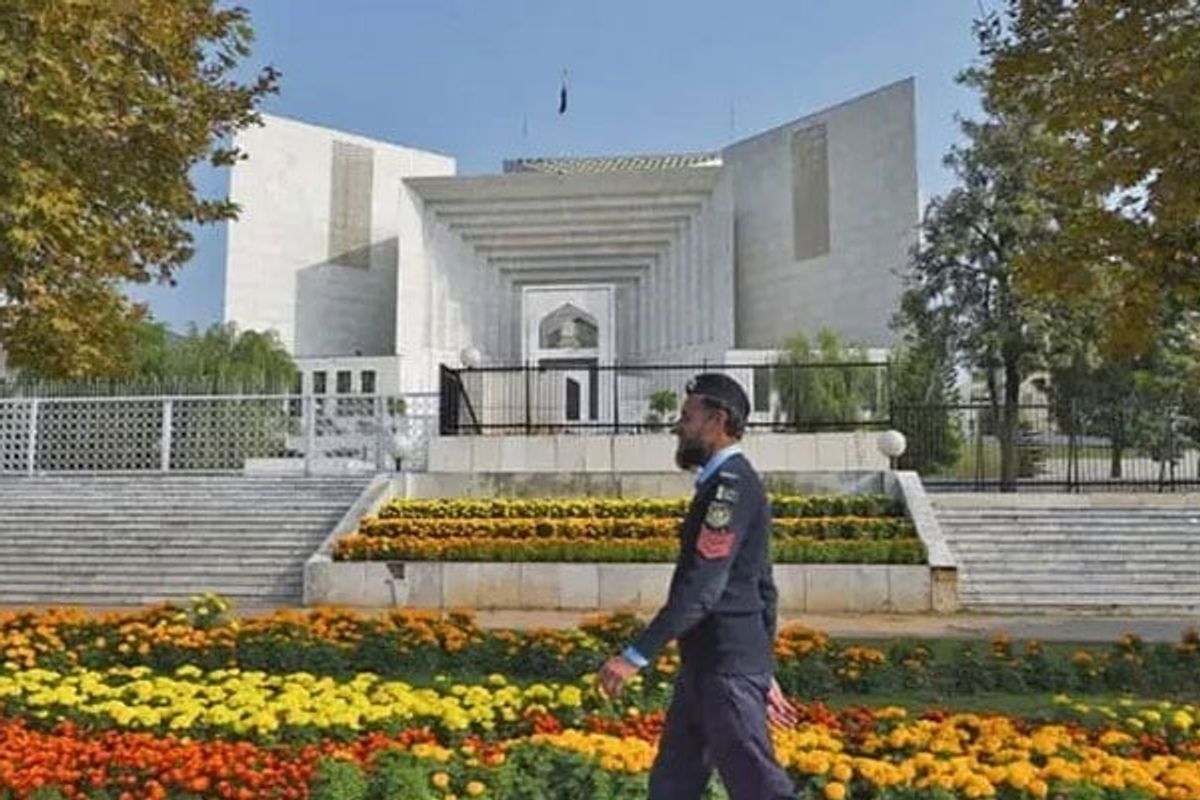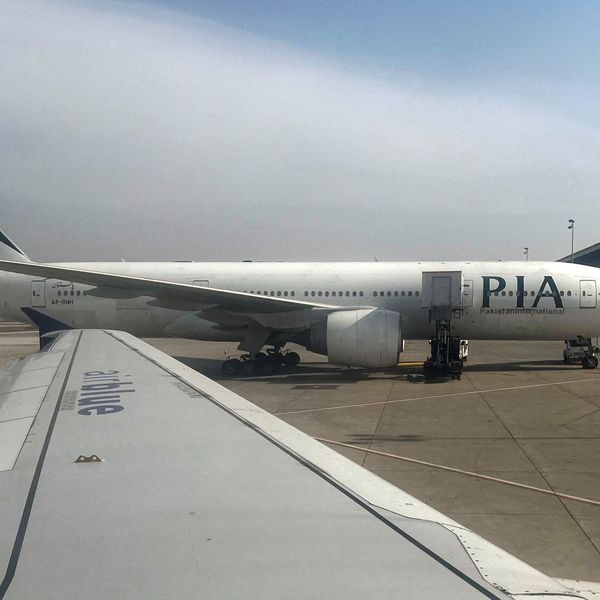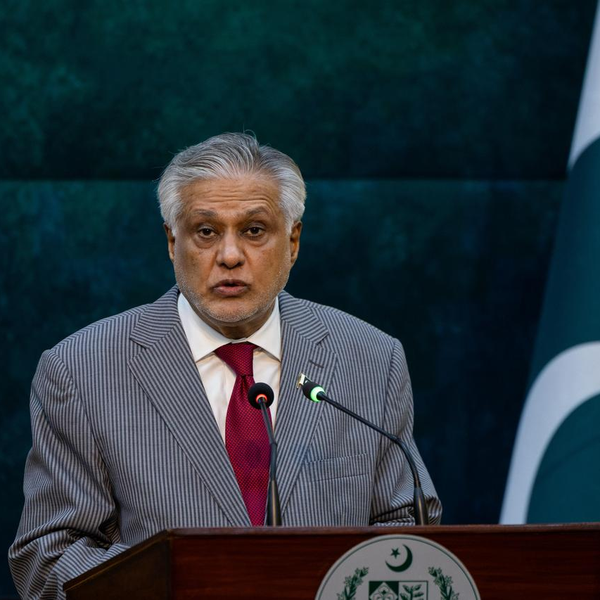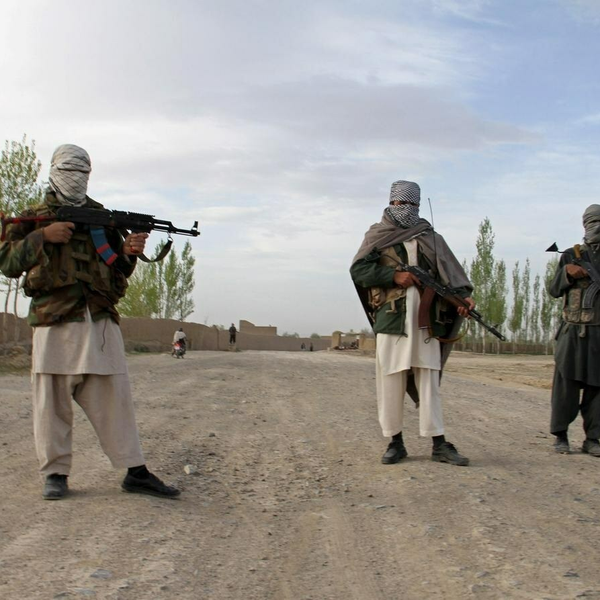Pakistan's top court reviews constitutionality of military trials for civilians
Government argues extraordinary cases permit civilian military trials

Aamir Abbasi
Editor, Islamabad
Aamir; a journalist with 15 years of experience, working in Newspaper, TV and Digital Media. Worked in Field, covered Big Legal Constitutional and Political Events in Pakistan since 2009 with Pakistan’s Top Media Organizations. Graduate of Quaid I Azam University Islamabad.

Judge questions applying military law to civilians unaffiliated with armed forces
Court probes whether defendants received proper legal representation
Court rejected recent pleas to transfer military detainees to regular prisons
The Supreme Court of Pakistan continued its pivotal hearing on Thursday regarding a constitutional challenge to military trials for civilians.
The case, being heard by a five-member constitutional bench headed by Justice Amin-ud-Din Khan, centers on whether civilians can be tried in military courts for allegedly attacking military installations during protests in May 2023.
The hearings address appeals against military court decisions that could affect over 80 civilians currently in military custody, a matter that has sparked intense debate about civil rights and military jurisdiction in Pakistan.
Justice Jamal Khan Mandokhail noted that the case centered primarily on Article 8 of the Constitution, which enshrines fundamental rights. He questioned the legal basis for subjecting civilians to military law and whether such application violates constitutional safeguards.
The justice said, "If a person belongs to the armed forces, military discipline applies to them. Similarly, if someone works in the agriculture department, its rules govern them. But how can military laws be applied to someone unaffiliated with any department?"
In his arguments, government counsel Khawaja Haris explained that the court's previous ruling on military trials comprised two distinct elements. The first element struck down certain provisions of the Army Act, while the second addressed the custody status of individuals facing trial in military courts. This ruling had declared civilian trials in military courts unconstitutional.
Justice Mandokhail, however, expressed concern that this interpretation could potentially nullify Article 8's protections. He questioned whether the Army Act had effectively rendered certain constitutional safeguards inoperative.
Defending the military courts, Khawaja Haris argued that specific extraordinary circumstances permit applying the Army Act to civilians. He maintained that these trials comply with Article 10-A of the Constitution, which guarantees the right to a fair trial.
Procedural concerns
Justice Musarrat Hilali raised additional concerns about procedural matters, pointing out that defendants in military courts had not received copies of their First Information Reports (FIRs). She questioned whether the accused were provided access to legal representation and evidence during their trials.
Haris responded by assuring the bench that military courts guarantee defendants both legal counsel and access to all relevant case materials. The court had on Wednesday rejected a plea to transfer these civilian detainees to regular prisons.
Justice Mandokhail further emphasized that the presidency represents Pakistan's highest office. He questioned this disparity: "If an attack is carried out on the President's House, the accused will be tried in an anti-terrorism court, but if an attack is carried out on military property, the trial will be held in military courts?"
Khawaja Haris responded by stating, "This distinction has been established through legislative decision-making."
In response to another question, Haris explained that ordinary courts handle certain cases involving military personnel too, such as when a soldier is accused of murdering an officer.
The hearing concluded for the day and will continue tomorrow with additional arguments. The Supreme Court is expected to make a final ruling on the constitutionality of military trials for civilians, a decision that could affect numerous pending cases.
Related developments
Pakistan's military courts came under scrutiny after the May 9, 2023 protests, when over 80 civilians were detained for attacking military installations.
A Supreme Court ruling in early 2024 declared civilian trials in military courts unconstitutional. The Defense Ministry has since maintained that extraordinary circumstances permit such trials, leading to the current debate.
The 26th Amendment, passed in October 2024, altered the judicial appointment process and became central to the military trials debate.
Former Chief Justice Jawwad S. Khawaja argues that the amendment's constitutionality must be determined before proceeding with military trials cases, as it affects the legitimacy of the current bench.
The Supreme Court rejected two key pleas this week: one seeking to transfer military trial detainees to regular prisons, and another requesting postponement of these hearings until the 26th Amendment's validity is decided.







Comments
See what people are discussing